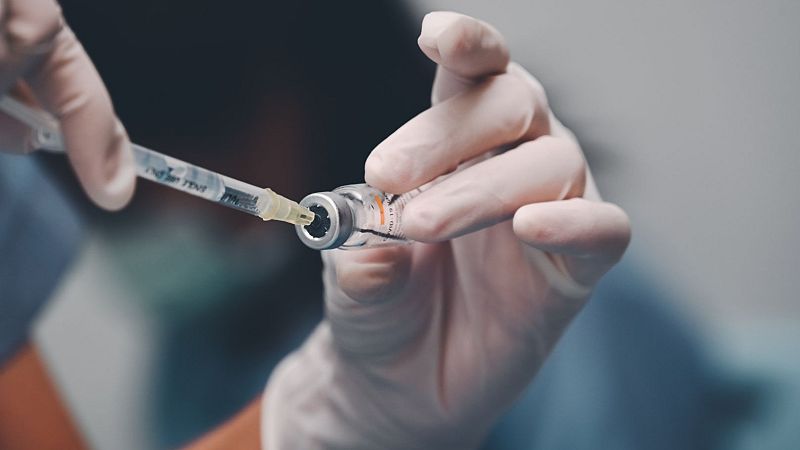
A so-called cancer vaccine helped prolong the lives of some patients with pancreatic and bowel cancer, an early study has found.
These types of cancer frequently reoccur, even after patients have undergone surgery and chemotherapy. The risk is higher when trace amounts of cancer remain in the body, enabling tumours to grow once again.
To attack these malicious cells, scientists have been experimenting with cancer “vaccines,” a type of immunotherapy that prompts certain immune cells to recognise and kill cancer cells.
Pancreatic and bowel cancers often occur when people have mutations in the KRAS gene, which helps cancer tumours grow. Researchers say that makes them an ideal target for cancer vaccines.
The new findings, published in the journal Nature Medicine, still need to be validated in larger studies. But they indicate immune-boosting treatments could be promising for certain cancer patients.
The early-stage trial included just 25 people – 20 with pancreatic cancer and five with bowel cancer – who had completed standard treatments but still had signs of cancer in their blood.
While other experimental cancer vaccines are personalised based on patients' specific tumour proteins, the jab used in this study was manufactured in bulk.
After an average of nearly 20 months, 17 of the patients who received the vaccine had developed a strong immune response to the mutant tumour proteins.
The pancreatic cancer patients lived an average of 29 months after vaccination, including more than 15 months cancer-free.
Patients with the strongest immune responses also lived longer and remained cancer-free for longer than those with weaker responses.
The study authors said that while there are other treatment options to target mutant KRAS proteins, the “off-the-shelf” vaccine could help train patients’ immune systems to recognise and attack these cancer cells.
Dr Magnus Dillon, a clinician scientist at the Institute of Cancer Research in the United Kingdom who was not involved with the study, called the results “extremely promising”.
“Many patients have these KRAS mutations, so an off-the-shelf vaccine could benefit lots of people – it saves the cost and time required to make a personalised vaccine,” Dillon said in a statement.
However, Dillon and other independent experts emphasised that the findings will need to be validated in larger studies before researchers understand how effective they could be.
“While the results are promising and hypothesis-generating, they remain preliminary and will need to be validated in larger, randomised studies before clinical benefit can be confirmed,” Dr Khurum Khan, an oncologist in London, said in a statement.
Richard Sullivan, director of the Institute of Cancer Policy at King’s College London, also cautioned that the early findings could be skewed because the study looked at both pancreatic and bowel cancers, “two widely different cancers with very different prognosis”.
“We’ve been here before with this sort of approach and not have it translate into tangible efficacy,” Sullivan said in a statement.
The jab is now being tested in a phase 2 randomised trial.







